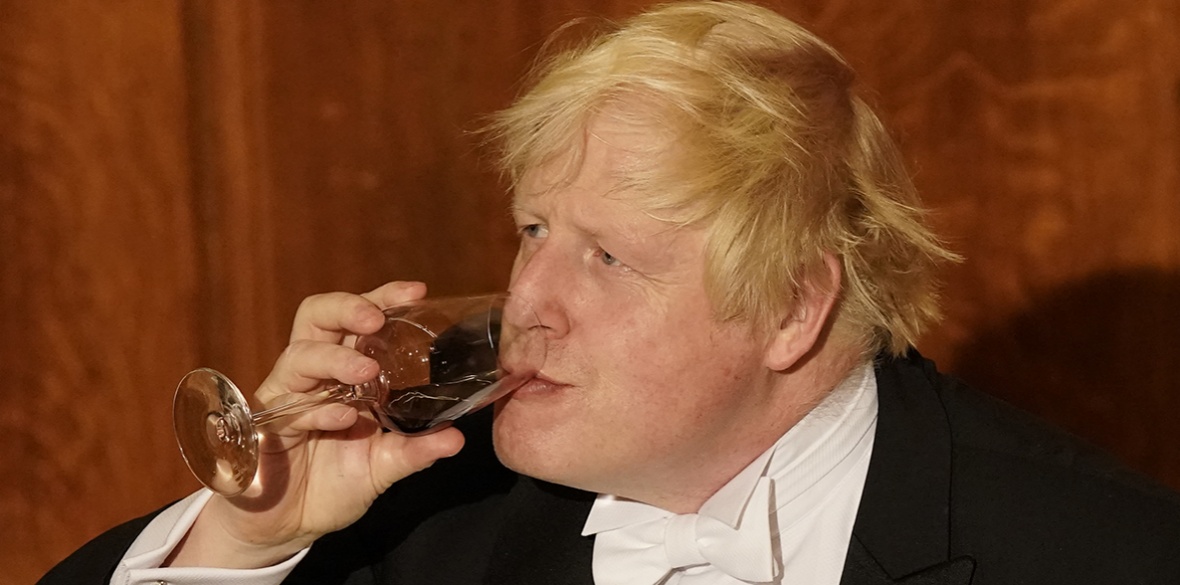SO DIRE was Boris Johnson’s speech to the Confederation of British Industry that Downing Street was forced to assert today that the Prime Minister was “physically well.”
Combined with a bruising rebellion over social care, it was enough to get government insiders briefing the BBC that “there is a lot of concern ... it’s just not working.”
Johnson has often deployed his buffoonish image for calculated political advantage, but the cool response to his Peppa Pig ramblings and motorcar impressions suggests the wheels are coming off.
Senior Tories attribute the malaise to the PM personally. Many would love to see the back of him.
Johnson’s irreverent, jovial public persona and populist egomania have sometimes proved necessary to see off more maverick left-field opponents – Ken Livingstone in London, Jeremy Corbyn nationwide – but they are not business as usual, and business as usual is what the Conservative Party is all about.
They have a problem, however, because if the shine is coming off Johnson it is coming off the whole project that bagged them their 80-seat majority in 2019.
As the Morning Star observed during Tory conference, that win was the party’s first comfortable victory since 1992. Glancing down a list of British prime ministers gives the impression that the Conservatives are a party in fine shape, holding office continuously for 11 years.
But in reality they have repeatedly failed to secure majorities despite overwhelming media support, deep pockets and a casual attitude to the truth.
A global economic crash on the last Labour government’s watch did not win them a majority in 2010. Only the implosion of their coalition partners, the Liberal Democrats, gifted them a narrow majority in 2015, and they lost that to a Labour surge in 2017.
It is true that, relatively speaking, the Tories have navigated the collapse of public consent to the status quo that followed the bankers’ crash better than Labour has. But there have been close shaves, most obviously in 2017, when the opposition articulated an unusually clear critique of the way the country is run and offered an unusually bold alternative.
For the Tory Party, Johnson is not merely the knight who slew the Corbynist dragon. He is the leader whose emphatic win over Labour seemed to end a decade of political instability and offer British capitalism a new lease of life.
He did so by jettisoning austerity rhetoric and promoting state intervention and “levelling up,” as well as by exploiting Labour’s Brexit contortions. What we are seeing now are the limits of this strategy.
The downgrading of his government’s offer to help cover crippling social care costs echoes the U-turn on high-speed rail.
Both disproportionately disadvantage those areas of northern England the Tories have been prising out of Labour’s grasp. This could spell big trouble for the electoral strategy that saved the party in 2019.
And both show a Treasury hostile to public spending running up against election promises. The consequences here could be further reaching still.
The sense that “we can’t go on like this” is pervasive in Britain.
The economy isn’t working for the majority. That explains the appeal of Corbyn from 2015. It also explains the appeal of Johnson from 2019, as millions looked to Brexit as the decisive break from the status quo that was needed.
Tory loyalty to a parasitical profiteer class has always been an obstacle to delivering on public investment. Now it stands in its way even as the CBI itself begs for higher public spending (to make up for British businesses’ refusal to invest in anything except property speculation).
This is bad news for the Conservative Party. But, as we saw from Keir Starmer’s own CBI address, Labour is also hobbled by the determination to prop up a broken system.
The confrontation we need with a morbid and moribund British capitalism will have to come from below.










